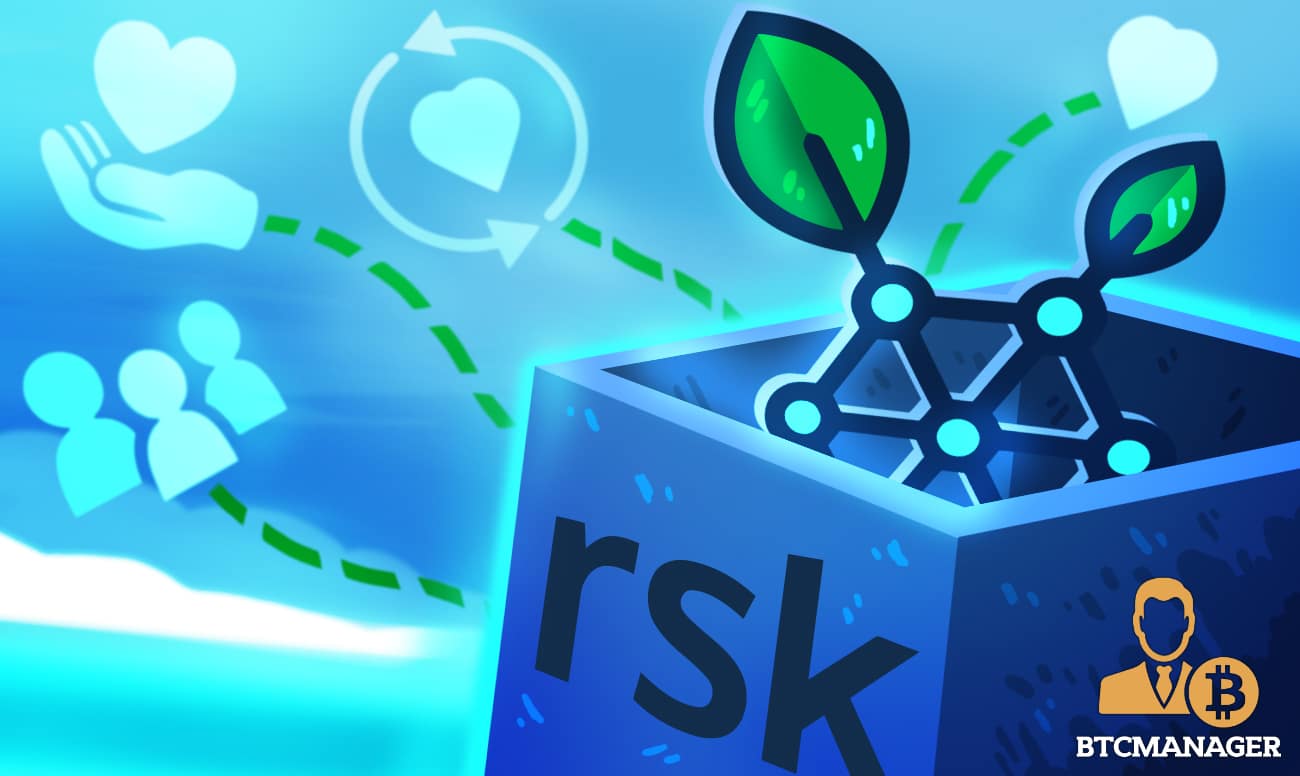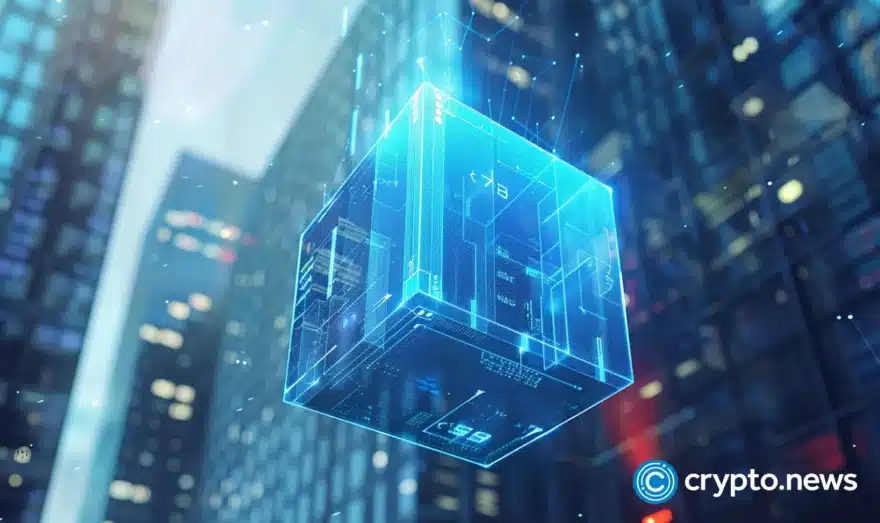RSK Blockchain Empowering the Social Impact Space

Although blockchain technology is consistently touted as a force to reckon with in the traditionally heavyweight industries including finance and banking, the technology’s peculiar characteristics such as immutability, and safety, among others, make it an ideal fit for the social impact sector. To date, several projects have leveraged distributed ledger technology (DLT) to transform the lives of billions of people the world over.
Akin to these projects, RSK has been burning the midnight oil to ensure the benefits of DLT are efficiently dissipated among the vulnerable sections of the society. RSK is tapping blockchain to bank the unbanked, increase traceability of goods to ensure quality, create decentralized digital identities, and in a more contemporary context – reward scientific and medical efforts that can have a positive impact on the lives of billions of people.
In this article, we will explore in what ways RSK is utilizing blockchain technology for a more inclusive tomorrow. Expanding the typical use-case of DLT beyond underpinning financial assets and monetary transactions, RSK aims to bring forth the immense versatility of the emerging technology and use it toward humanitarian purposes.
Blockchain in Charity
GiveTrack
RSK powers the blockchain-enabled GiveTrack donation platform to seeks to aid nonprofits to provide better transparency and accountability to donors by sharing critical information and project results in real-time. RSK believes the future of philanthropy lies in real-time tracking of funds and GiveTrack is just the platform for that.
Through GiveTrack, RSK is specifically looking to help nonprofits operating in developing countries that suffer from the availability of limited financial services, long wait times, a high number of fraudulent transactions, and a lack of tools to ensure transparency. Notably, these nonprofits typically lose as much as 30% of their funds in transaction and service fees due to the inefficiencies associated with fund distribution mechanisms associated with traditional finance.
GiveTrack enables these nonprofits to enjoy the benefits of cryptocurrencies that ensure rapid transfer and settlement of funds from virtually anywhere in the world. In addition, digital currencies also guarantee considerably lower transaction fees, robust cryptographic security, and transparency.
By streamlining and bringing higher efficiency to nonprofit organizations’ monetary operations, GiveTrack can ensure the funds are used for the pertinent cause without any hassle and subsequently have a greater positive impact on the lives of the people on the ground.
Circles of Angels
Circles of Angels aims to tackle the bottlenecks associated with the lack of transparency prevalent in the social impact financing space. A total of 767 million people live below the international poverty line of $1.90 a day. It’s not far-fetched to assume that this figure might only have increased due to the economic catastrophe brought by the COVID-19 pandemic.
Although there’s no dearth of social enterprises that aim to tackle this concerning global issue, the lack of easy-access to funds, markets, capital, and information has greatly stunted the growth of these enterprises. Further, there’s also a lack of robust platforms and tools that can authentically track the use of funds on the actual impact disbursed by social enterprises for the betterment of the communities impacted. This mismanagement is only widening the gulf between the rich and the poor and the more vulnerable sections of the society, especially women and children, continue to suffer living in absolute poverty.
Built on top of the RSK smart contract infrastructure, Circles of Angels aims to build an inclusive funding network that enables social impact financing for all via blockchain technology. The project is working toward developing a transparent platform that offers a simple yet comprehensive tool to visually track the journey of funds disbursed in the social impact financing sector all the way from funders to social enterprises. This will not only ensure the timely distribution of funds that can be utilized for uplifting the socio-economic status of the vulnerable sections of the society but also give a clear picture of the groundwork being carried out by the responsible enterprises.
Circles of Angels is a multi-sided platform geared toward social enterprises that are working in the education, climate change, tech for good, and art space. The platform is open to funders, philanthropists, and angel investors who are keen on using DLT to play their part in making a positive impact on the lives of billions of vulnerable individuals across the globe.
Blockchain for Traceability
Carnes validadas
The unparalleled potential of blockchain technology to transform the supply chain space as we know it is well-known. RSK has partnered with Argentina-based Carnes validadas to leverage DLT to give transparency and clarity to the meat production process in the country.
The partnership aims to streamline the meat production process in Argentina by developing a solution that ensures consumers about the quality of the meat they consume. What’s more, by decomoditizing the meat production process through differentiation, Carnes validadas would vie to achieve a better market positioning that will allow it to capture greater final value.
Tackling the COVID-19 Pandemic
The COVID-19 pandemic is inarguably one of the biggest humanitarian crisis of the past few decades. The pandemic has brought the global economy to an absolute standstill and threatens to break the medical infrastructure of the majority of the developing and underdeveloped countries around the world.
In this regard, RSK is actively cooperating with numerous blockchain projects that are spearheading the battle against the pandemic. Some of the projects RSK is supporting in these testing times include David19 with the BID Lab & LACChain, and BitGive’s Blockchain-Powered COVID-19 Relief Campaign, among others.
Specifically, RSK is focused on developing blockchain-powered digital identity solutions that can play an instrumental part in tackling the COVID-19 crisis. A decentralized, publicly-accessible data layer to track the movement of COVID-19 positive patients – both symptomatic and asymptomatic – can aid governments in tracking and isolating suspected individuals in specific locations. Decentralized digital identities will also do away with the existing public information sharing infrastructure in many countries that is often corrupted and inaccurate. Further, these digital identities can also be utilized for the efficient distribution of a potential future vaccine to the most vulnerable people.
Similarly, by tapping a DLT-enabled traceability solution, the ready availability of medicinal resources can be ensured. The traceability solution will also ensure that only legitimate medical supplies reach the frontline workers by helping in the identification of counterfeit supplies. It will help immediately weed out dishonest suppliers from the medical equipment supply chain who don’t comply with existing regulations.
Blockchain for Financial Inclusion
Enabling Financial Inclusion via Digital Identities
RSK is committed to giving individuals complete control over their financial data without them having to compromise on privacy. Having complete control over your identity is the first step toward enabling a privacy-preserving future. This can be achieved via decentralized digital identities (DIDs). Further, DIDs also play a critical role in ensuring financial inclusion via blockchain technology.
Built on top of RSK, RIF Directory is playing a crucial role in fostering an economy that is driven by individuals who have complete control over their digital identities.
RIF Directory’s vision of disrupting the centralized hoarders of data majorly comprising of multi-national tech conglomerates echoes the ethos of blockchain technology. To learn in more detail about how the RIF Directory is creating a social impact via DIDs, click here.
Democratizing Access to Finance
Once individuals have complete control over their digital identities, enabling financial inclusions for millions of people at once becomes a fairly straightforward task. By removing the middlemen who typically charge hefty transaction commission, the unbanked of the society can gain ready access to decentralized finance (DeFi) products that are built around the idea of democratizing access to finance.
To get a glimpse of how RSK is playing its part in ensuring global financial inclusion, individuals can check out our article detailing the nitty-gritty of the recently launched RIF on Chain (ROC) DeFi Exchange.
Closing Remarks
The ever-widening economic gulf between the rich and the poor has necessitated the need for tools that help even the grounds. Blockchain technology provides a slew of innovative and robust products that can help bridge this gap. As can be inferred from the aforementioned encouraging developments, an increasing number of entities are embracing this emerging tech to create a positive social impact to alleviate the socio-economic situation of the vulnerable sections of the society.
In this worldwide endeavor to ensure that no individual faces any issues while accessing basic necessities, RSK continues to innovate and partner with other like-minded entities that have turned to DLT to fight for the cause.












